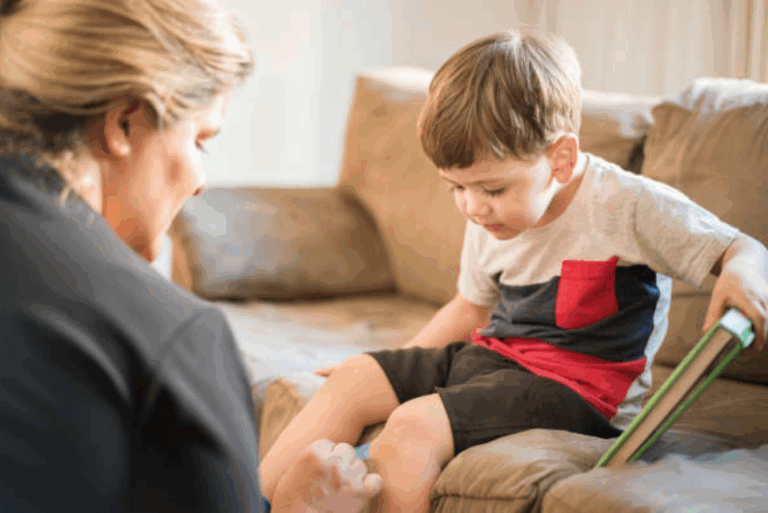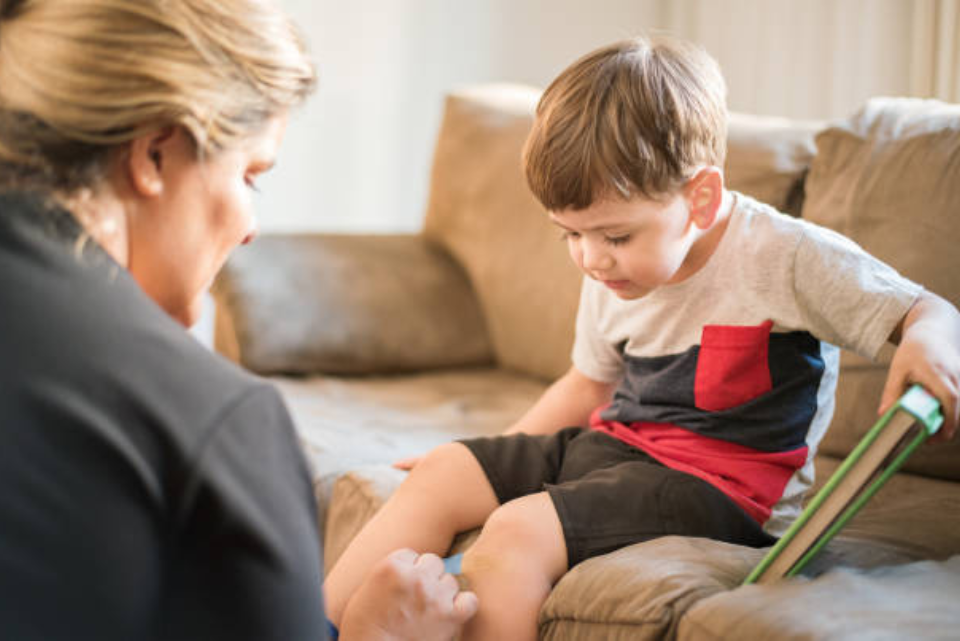You drop your child off for a birthday party at the neighbor’s house. You’ve known them for a few years, and while you don’t regularly socialize with them you generally believe that they are nice people.
The day of the party comes and there are ten 12-year olds running around the house. About an hour after the party starts a call comes in that your child has fallen onto a broken fence that was lying in the yard, and has been seriously hurt.
This and similar scenarios happen all the time. Whether it’s a dangerous condition on the property, an aggressive dog or a violent sibling, when you leave your child with others you always run the risk of an accident.
If your child is hurt while visiting a neighbor you are faced with an uncomfortable situation. On the one hand you want to do everything you can to protect your child’s interests; on the other you realize that if you take any action against your neighbor it will likely ruin the relationship.
So you decide to go at it alone. You reach out to the neighbor’s insurance company and decide to “settle the claim” on behalf of your daughter. You’ve spoken with your neighbor, and you both want to work things out amicably. This is admirable, certainly possible, and sometimes even effective. But before you resolve anything on behalf of your child there are a few things you must keep in mind.
First – the insurance company is not in the business of paying top dollar for claims. They are in the business of saving money. No matter how friendly the adjuster may seem, or how agreeable your neighbor is, the unfortunate reality is that you are on opposite teams when it comes to a claim. Do not be mistaken – they want to pay you as little as possible. Keep this in mind when negotiating, and remember that even if your first demand is reasonable, they will say it’s too high and respond with something lower.
Second – you must, at a minimum, be aware of the legal arguments that you have available, and be prepared to explain to the insurance company why you are likely to succeed. A common insurance company tactic is to try and inundate the non-lawyer claimant with legal arguments as an intimidation tactic. You must be aware of the legal issues and requirements surrounding animal attacks and other common injuries involving children, at least familiar with a case or two, and know what you have to prove and whether you can prove it. You will be doing yourself and your child a disservice if you are not prepared with this information.
Third – understand that no matter how much you and your neighbor want to be “fair,” the neighbor does not make the decisions. Insurance polices are generally very clear as to who has the ultimate authority to settle claims, and for what amount. It is not the policy holder. Be aware that even if your neighbor thinks that you are entitled to the full policy amount, the insurance company may very well feel differently, and it is their opinion that really matters.
Fourth – you must know or have a very good idea of the damages before settling the claim. Dog bites and other child-related accidents can cause injuries that require surgery and often have long term implications that are not immediately foreseeable. You must be aware of this, and adequately consider your child’s potential long-term problems in assessing the claim. Will she need further surgery? Will she have long term vision damage? These are critical questions to ask before resolving the claim – and you can be assured that the insurance company will not be the one asking them.
Fifth – be aware that once you settle the claim, you or your child cannot pursue it again at a later date. Once you settle the claim, whether pre-suit or after trial, you will be asked to sign a release against the wrongdoer and the insurance company. Once you sign this release you and your child will be legally prohibited from ever seeking damages from either party again for the injury. This makes it critical to ensure that you have covered all of your bases before settling.
Sixth – the settlement will likely require court approval, even pre-suit. The rules governing resolution of claims on behalf of infants are strict, and the New York Civil Practice Law and Rules provides for judicial approval of a settlement, even pre-suit.
Finally – if you do settle the claim on your own you should have a plan. You are your child’s guardian, which means you are in a position of responsibility and have an obligation to adequately protect your child’s interests. If your child suffered a severe injury you must place the settlement funds into an account for the sole benefit of the child, or an annuity, structured settlement, or some other investment vehicle that will protect the funds long-term and ensure that your child receives payouts when she needs them (for future medical care, college, etc.). Do not just deposit the money into your personal account.
Parents largely want to do what’s right for their children, and while it is understandable to want to settle your child’s claim yourself there are hurdles to be aware of before doing so. If you have questions about an injury to a child give us a call. We routinely represent families who have tried to resolve matters on their own, only to quickly become frustrated with the process.


